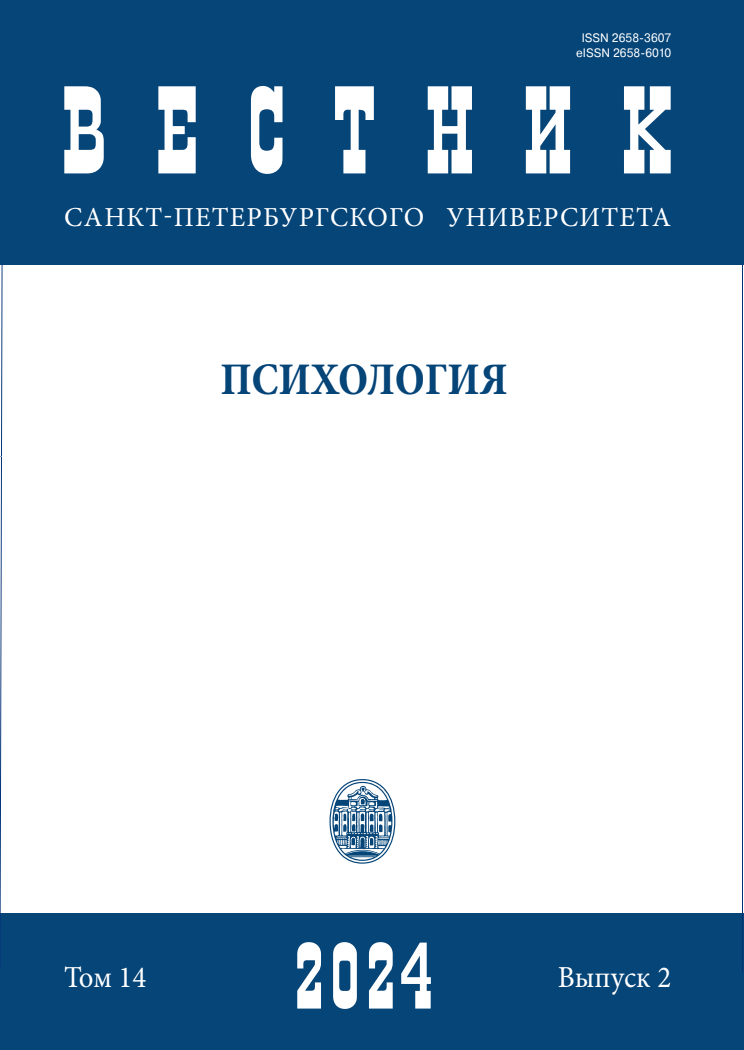Психология и образование в XXI веке: анализ убеждений российских педагогов относительно использования современных психологических знаний на практике
DOI:
https://doi.org/10.21638/spbu16.2024.211Аннотация
В статье предлагается подход к оцениванию психологических знаний педагогов через анализ их убеждений относительно доказательных принципов, сформулированных в науках об образовании в последние годы. Исследование проводилось в 2021–2022 гг. на выборке российских педагогов, работающих в школе (N = 344, 93,3 % женщин, 41,7 % из Москвы). Использовался авторский опросник исследования убеждений школьных педагогов, опирающийся на 20 доказательных психологических принципов, важных для обучения и учения, и оценивающий убеждения в 6 областях: роль учителя в эффективности обучения; отсутствие веры в мифы об учении и обучении; психологически безопасная среда; мотивация учеников; управление классом; оценивание. Уровень убежденности педагогов в истинности доказательных психологических принципов колеблется от 27,9 до 87,9 %, при этом чем выше стаж у педагога, тем реже он верит в такие принципы и тем чаще опирается на бездоказательные утверждения об учении и обучении. Наиболее высокие уровни владения доказательными психологическими знаниями учителями демонстрируются в блоках, касающихся оценивания учеников и создания психологически безопасной среды по сравнению с блоками, описывающими принципы управления классом, мотивацию учеников и роль учителя в эффективности обучения. Также показано, что педагоги считают психологические знания необходимыми скорее в нестандартных, сложных ситуациях практики (дети с низкой учебной мотивацией, низким уровнем учебных умений, конфликты, сильные эмоциональные реакции учащихся), нежели в стандартных ситуациях (подготовка и проведение уроков, взаимодействие с учащимися и их родителями). Исследование показало необходимость дальнейшей разработки такого подхода к исследованию психологических знаний педагогов, который бы опирался на оценку их убеждений в использовании доказательных психологических принципов для разрешения конкретных ситуа ций школьной практики. Полученные данные свидетельствуют о необходимости повышения психологической компетентности педагогов в целом.
Ключевые слова:
психологические знания, учителя, учительские убеждения, психологическая компетентность, принципы эффективного обучения
Скачивания
Библиографические ссылки
References
Загрузки
Опубликован
Как цитировать
Выпуск
Раздел
Лицензия
Статьи журнала «Вестник Санкт-Петербургского университета. Психология» находятся в открытом доступе и распространяются в соответствии с условиями Лицензионного Договора с Санкт-Петербургским государственным университетом, который бесплатно предоставляет авторам неограниченное распространение и самостоятельное архивирование.




